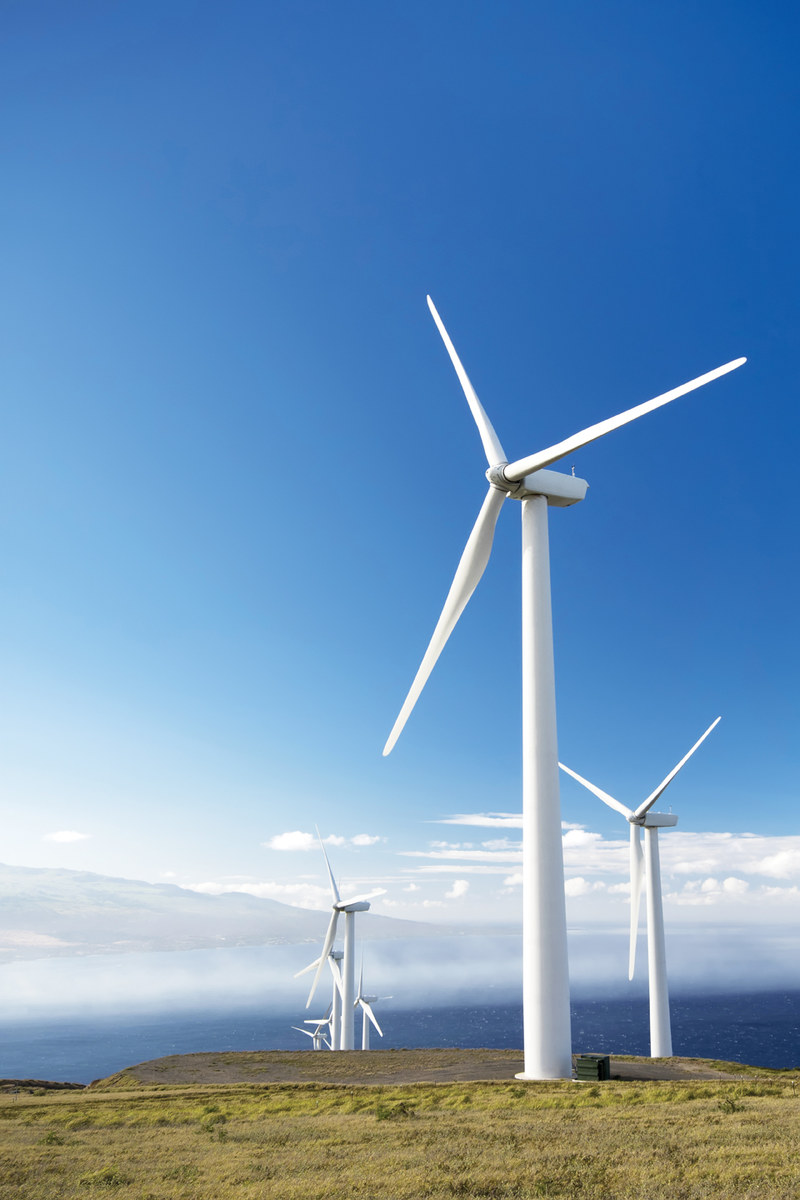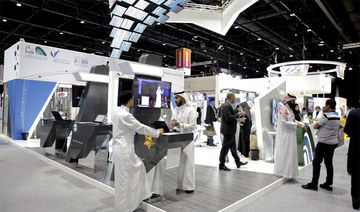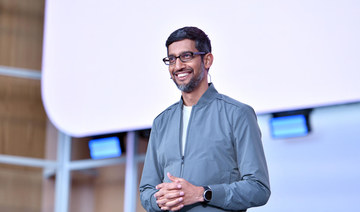ABU DHABI: Artificial intelligence (AI) will play a key role in the near future in the utilization of energy resources — including renewables such as solar and wind power — according to a report that draws on research conducted by the American management consulting firm McKinsey & Company.
The report, entitled “Artificial Intelligence: Transforming the Future of Energy and Sustainability,” highlights the potential for AI applications in the Middle East energy sector amid a flurry of investments in renewables such as solar and wind.
The study cites McKinsey’s estimates that AI technologies have the potential to create value ranging from $3.5 trillion to $5.8 trillion annually across 19 different energy industries.
“We see AI and the full power of digital analytics coming up in all parts of the energy system, whether in oil or gas,” said Rachid Majiti, a senior partner at McKinsey & Company.
“It has been a tech-heavy industry. It is now, more than ever, cheaper to capture, process and store data, which means you can use much more complex and advanced algorithms to optimize your oil and gas operations, translating into more production output and lower costs.”
Majiti foresees AI and digital-analytics applications across the spectrum of energy sources, specifically renewables, given the intermittency of wind and solar-power generation and the consequent need for continuous grid stabilization on the basis of production output.
FASTFACT
$5.8 trillion
Value creation potential of AI across energy industries
He said there are significant opportunities for AI in the management of renewable energy generation as users will need to understand, monitor and adjust output patterns.
“If you cannot deal with the intermittency, you cannot count on it, which defies its purpose,” Majiti said.
“As consumers start playing a role as producers of electricity at home in the future, AI can help in managing demand and supply between the network and the source.”
Globally, electricity demand is forecast to double by 2050. The hope is that renewable energy will account for more than 50 percent of the power supply in the post-2035 period.
In the Middle East, energy demand is expected to grow by 10 to 15 percent by 2035 — and by 20 percent by 2050.
The energy scenarios are partly grounded on the alternative energy ambitions of Abu Dhabi and Saudi Arabia.
“The region has great potential,” Majiti told Arab News. “It has one of the best solar irradiance globally, and this high solar intensity allows to produce solar power at very competitive costs.
“Given the ambitious plans and competitiveness of its renewable energy, the region has an opportunity to continue maintaining its global energy leadership by combining its oil and gas leadership with its (expanding) renewables (portfolio).”
This will also allow regional governments to maintain the cost of energy low for consumers — both residential and industry — thus supporting an energy-intensive industry in the future.

Incidentally, several countries in the Arab region are introducing smart meters, which are designed to help utilities monitor power demand more closely — and both utilities and consumers to better understand consumption patterns.
This is an area in which Saudi Arabia is a pace setter: It recently awarded a $30 million contract for supplying and installing 120,000 smart meters in the Northern and West Northern regions of the Kingdom.
Once implemented, the scheme will effectively reduce operational costs and water waste and boost the accuracy of water use data, establishing in the process the infrastructure for further AI-based innovations.
Looking ahead, “Transforming the Future of Energy and Sustainability” underscores Saudi Arabia’s efforts to meet its goal of becoming the largest smart-grid developer in the Middle East and North Africa region.
The Kingdom has launched the process of establishing an advanced billing infrastructure comprised of 8.3 million smart meters, expected to be installed over the next seven years.
“The overall Saudi smart grid market is predicted to reach a value of $3.6 billion before 2030,” the study said.
Referring to the $500 billion Neom project, the new report says Saudi Arabia’s objective is to power the mega-city entirely through AI-based solutions using 100 percent renewable energy.
Such a plan will enhance AI’s influence on how the Arab region finds solutions to its urban energy challenges.
Dr. Scott Nowson, AI lead at PwC Middle East, describes AI’s potential for disrupting the Middle East’s renewable energy sector as enormous.
Take demand prediction, which is a significant consideration in any energy market. “With a dependency on ever-changing environmental factors — like weather — being able to accurately model supply from renewable sources is very important,” Nowson said.
“Another application of AI would be machine learning to determine the best locations for new solar-panel placements.”
Nowson says the transition to a sustainable energy model is particularly important for the Gulf Cooperation Council as the region represents some of the largest producers of oil per capita in the world.
“It’s in the global interest that we explore alternatives,” he told Arab News. “But our latest CEO survey tells us we still have some way to go when it comes to renewables.”
The 2020 Global PwC CEO survey, launched in Davos, found that while recognition of opportunities from climate change initiatives has more than doubled in the last decade, the region is still playing catch up when compared to global peers.
“But no place in the world is going through the change and initiatives we are witnessing here in the region,” Nowson said.
“Neom is a case in point. That is why I strongly believe in the potential of AI to support and help accelerate both production and consumption of renewable energy and enable the region to become a world leader on that front.”
In the near future, Nowson anticipates increasing investments in AI application in renewable energy, not just for deployment but also in research and development.
“This could be through material science for more efficient solar cells, exploration of biofuels, or using complex simulations to understand how to run our cities in the most environmentally efficient manner,” he said.
A second report by McKinsey, “Global Annual Energy Perspective,” which offers a detailed outlook across 146 countries, provides more proof that energy systems around the world are going through rapid transitions.
The study anticipates a significant rise in energy demand in the Middle East due to population increase, economic expansion and industrial development.
“The region also has one of the highest energy intensities, both on a per capita basis as well as a per unit of GDP basis,” Majiti said.
“This results in a higher potential for savings from energy efficiency from households in the Middle East.”
To meet the projected higher energy demand, significant capital investments have been made by Middle East governments and the private sector.
More attention is now being given to energy efficiency as governments take action through efficiency programs, prompting consumers to use different appliances.
“Consumers are becoming more aware of energy efficiency to help reduce their bills,” Majiti said. “The good news is that energy demand will still grow, and energy is a key ingredient of economic growth.”
Nevertheless, “Global Annual Energy Perspective” estimates lower future growth rates for energy in the Middle East, compared with historical data. This suggests that conservation efforts are leading to changes in energy-use behavior that are resulting in a positive impact on energy demand.
“On the supply side, the biggest evolution we are seeing is the increasing role of renewables in the energy mix in the Middle East,” Majiti said.
“Globally, renewables have already started to accelerate, contributing to a significant share of the energy mix.”
























